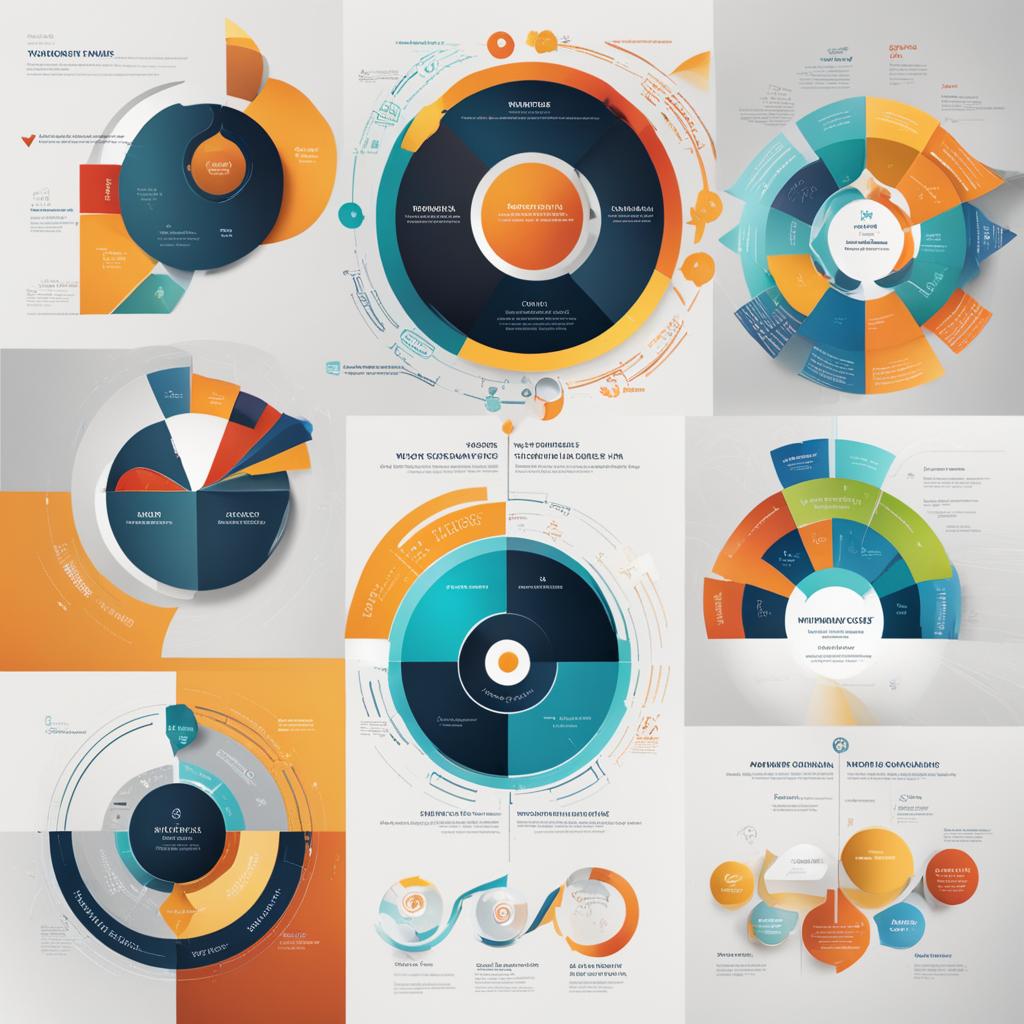In a rapidly changing world, it is crucial to develop skills that will be in high demand in the future. As technology advances, new job opportunities emerge, and industries continue to evolve, there are certain skills that will serve as a strong foundation for career success.
Here are 5 essential future skills that will help you stay ahead in the ever-changing job market:
1. Critical Thinking and Problem-Solving
Critical thinking and problem-solving skills are essential for navigating complex challenges in the future. The ability to analyze information, think critically, and come up with innovative solutions will be highly valued.
2. Collaboration across Networks and Leading by Influence
The future will require individuals who can collaborate effectively across networks and lead by influence. Building strong interpersonal skills, fostering teamwork, and developing the ability to influence others will be crucial for success.
3. Agility and Adaptability
The ability to adapt and be agile in an ever-changing work environment is a key future skill. Individuals who can quickly adapt to new circumstances, embrace new technologies, and learn new skills will thrive.
4. Initiative and Entrepreneurialism
Taking initiative and having an entrepreneurial mindset will be crucial for success in the future. Cultivating a proactive approach, being comfortable with ambiguity, and embracing a growth mindset are keys to developing these skills.
5. Effective Oral and Written Communication
Effective communication skills, both oral and written, will be essential in the future. The ability to convey ideas clearly, engage audiences, and present information in a compelling way will be highly valued.
Key Takeaways:
- Developing essential future skills is crucial for career success in an ever-changing world.
- Critical thinking, collaboration, agility, initiative, and communication are key future skills.
- Adaptability and entrepreneurialism are vital attributes for thriving in the future job market.
- Effective oral and written communication skills are highly valued in diverse working environments.
- Take the initiative to cultivate these skills through practice, continuous learning, and embracing new opportunities.
Critical Thinking and Problem-Solving
When it comes to preparing for the future, developing critical thinking and problem-solving skills is of utmost importance. The ability to analyze information, think critically, and come up with innovative solutions will be highly valued in a world that is constantly evolving and presenting complex challenges.
By honing your critical thinking skills, you can approach problems with a well-reasoned and logical mindset. This involves evaluating information from multiple perspectives, identifying patterns and connections, and drawing meaningful conclusions. Through analytical thinking, you can effectively assess the root causes of problems and develop strategies to address them.
Furthermore, innovative thinking plays a crucial role in problem-solving. It allows you to think outside the box, generate creative ideas, and explore alternative solutions. Embracing innovative thinking enables you to approach problems with fresh perspectives, leading to unique and effective strategies.
Developing critical thinking and problem-solving skills is a continuous process that involves practice, research, and learning. By actively engaging in activities that challenge your thinking, such as puzzles, debates, and case studies, you can strengthen your cognitive abilities and enhance your problem-solving prowess.
“Critical thinking is the key to unlocking creative, resourceful, and effective problem-solving.” – John Adams
By adopting critical thinking and problem-solving as core skills, you will be well-equipped to navigate the complex challenges of the future and thrive in various professional domains.
Practical Steps for Developing Critical Thinking and Problem-Solving Skills
- Engage in critical reading and analysis of diverse materials
- Practice identifying and evaluating assumptions and biases
- Challenge your own beliefs and perspectives
- Engage in brainstorming activities to stimulate innovative thinking
- Solve puzzles, riddles, and logic problems to sharpen your analytical skills
- Collaborate with others to solve complex problems through a collective thought process
- Seek feedback and learn from both successes and failures
- Stay curious and open-minded, constantly seeking new knowledge and experiences
By embracing these practical steps, you can actively cultivate critical thinking and problem-solving skills, positioning yourself for success in the future.
Collaboration across Networks and Leading by Influence
In today’s interconnected world, collaboration and effective leadership skills are becoming increasingly important. The ability to collaborate across networks, work well in teams, and lead by influence will be key factors for success in the future. Developing strong interpersonal skills and leveraging networking opportunities can greatly enhance one’s career prospects.
“Alone we can do so little; together we can do so much.” – Helen Keller
Collaboration is the cornerstone of teamwork. By combining diverse perspectives and expertise, teams can tackle complex challenges and achieve remarkable results. In a rapidly changing work environment, where innovation thrives, successful collaboration will enable individuals to harness collective intelligence and drive exceptional outcomes.
Building effective collaborations requires strong interpersonal skills. These skills enable individuals to communicate clearly, actively listen, and empathize with others. By fostering an environment of trust and respect, collaboration can flourish, leading to productive working relationships.
Networking as a Catalyst for Collaboration
Networking plays a vital role in collaboration across networks. By connecting with professionals from different backgrounds and industries, individuals can tap into a wealth of knowledge and resources. Networking provides opportunities to learn from others, share ideas, and forge partnerships that can drive innovation and mutual growth.
Efficient networking also extends beyond traditional in-person interactions. In the digital age, virtual networking platforms and social media networks offer boundless opportunities to connect with professionals across the globe. Online communities and industry-specific forums facilitate collaboration and knowledge sharing, regardless of geographical constraints.
The Power of Leading by Influence
Leadership is not solely defined by authority but also by influence. Leading by influence requires individuals to inspire and motivate others to achieve common goals, even without formal positions of power. It involves leveraging interpersonal skills, effective communication, and a deep understanding of team dynamics.
When leaders lead by influence, they foster an environment where ideas are encouraged, and contributions are valued. They empower team members, giving them the confidence to take risks, experiment, and innovate. Leading by influence drives collaboration by enabling diverse perspectives to be heard, ensuring decisions are informed and well-rounded.
Developing Essential Interpersonal Skills
To excel in collaboration across networks and lead by influence, individuals should focus on developing essential interpersonal skills, including:
- Active listening: Actively listen to understand others’ perspectives and empower meaningful conversations.
- Effective communication: Clearly convey ideas and expectations to foster understanding and collaboration.
- Empathy: Understand and relate to the emotions and experiences of others to build trust and rapport.
- Conflict resolution: Navigate disagreements constructively to find common ground and maintain harmonious working relationships.
By honing these interpersonal skills, individuals can create an inclusive environment that encourages collaboration, open communication, and innovative thinking.
| Key Skills for Collaboration and Leadership | Description |
|---|---|
| Collaboration | The ability to work effectively with others, leveraging collective expertise and diverse perspectives to achieve shared goals. |
| Teamwork | The capacity to collaborate and contribute to a team, embracing responsibilities and supporting others to achieve desired outcomes. |
| Networking | The process of building and nurturing professional relationships to exchange knowledge, resources, and opportunities for collaboration. |
| Leadership | The skill of guiding and inspiring others, motivating individuals to achieve shared objectives through influence and effective communication. |
| Influence | The ability to persuade and sway individuals, leveraging interpersonal skills and credibility to create positive change within teams and organizations. |
| Interpersonal skills | A set of skills that enable effective communication, collaboration, and relationship building, essential for successful collaboration and leadership. |
Agility and Adaptability
In today’s rapidly evolving work environment, agility and adaptability are essential future skills that can pave the way for success. The ability to adapt to new circumstances, embrace change, and navigate through uncertainties will be key in staying ahead. In this section, we will explore how agility and adaptability are crucial for thriving in the future.
The Need for Continuous Adaptation
As advancements in technology, globalization, and market dynamics continue to reshape industries, the need for agility and adaptability has become more pronounced than ever before. The future will bring constant change and disruption, requiring individuals to quickly adjust and evolve to remain relevant in their careers.
“The future belongs to the adaptable.” – Unknown
Navigating Through Uncertainties
Building resilience and a growth mindset are vital components of agility and adaptability. Resilience allows us to bounce back from setbacks, learn from failures, and keep moving forward. A growth mindset encourages us to embrace challenges, seek new opportunities, and continuously learn and develop.
Embracing New Technologies and Skills
The fast-paced digital landscape necessitates a willingness to adopt new technologies and acquire new skills. Individuals who can quickly adapt to emerging trends and leverage technological advancements will have a competitive edge in their careers.
- Flexible professionals:
- Embrace change:
- Pursue continuous learning:
- Opportunity-driven:
Change Management and Resilience
Change management is a vital aspect of agility and adaptability. Effectively managing change involves understanding the impact of change, effectively communicating with stakeholders, and implementing strategies to mitigate resistance.
Building resilience is equally important. Resilient individuals are better equipped to handle unexpected challenges, navigate through uncertainties, and bounce back from setbacks. By developing resilience, we can respond to change more effectively and maintain productivity amidst disruptions.
Initiative and Entrepreneurialism
Taking initiative and having an entrepreneurial mindset are critical skills for success in the future. As the world continues to evolve, individuals who can identify opportunities, take calculated risks, and drive innovation will stand out from the crowd.
Developing a proactive approach is key to fostering initiative and entrepreneurialism. By being proactive, individuals can anticipate and act on emerging trends and market demands. They can seize opportunities before others and create their path to success. Being comfortable with ambiguity is essential in an ever-changing business landscape, as it allows individuals to adapt quickly and capitalize on new ventures.
Embracing a growth mindset is also crucial for developing initiative and entrepreneurialism. This mindset encourages individuals to view challenges as opportunities for growth, learn from failures, and continuously improve their skills and knowledge.
I have always believed that the future belongs to those who are willing to take risks, think creatively, and seize opportunities. By embracing initiative and entrepreneurialism, we can shape our own destiny and create a future where innovation thrives.
Examples of Initiative and Entrepreneurialism in Action
Let’s take a look at two inspiring examples of individuals who exemplify initiative and entrepreneurialism:
- Elon Musk – The CEO of Tesla and SpaceX, Elon Musk is renowned for his visionary ideas and relentless pursuit of technological innovation. He identified an opportunity in the electric vehicle market and disrupted the industry with Tesla’s groundbreaking electric cars. Musk’s entrepreneurial spirit also led him to pursue space exploration with SpaceX, revolutionizing the aerospace industry.
- Sara Blakely – As the founder of Spanx, Sara Blakely transformed the shapewear industry with her innovative products. Blakely displayed immense initiative by identifying a gap in the market and taking the risk to create a new solution. Today, she is not only a successful entrepreneur but also a role model for aspiring businesswomen.
These examples highlight the importance of initiative and entrepreneurialism in driving change, creating opportunities, and achieving extraordinary success.
The Benefits of Initiative and Entrepreneurialism
Initiative and entrepreneurialism offer various benefits in the professional sphere:
- Innovation: By taking initiative and thinking like an entrepreneur, individuals can introduce novel ideas, products, and services that transform industries and drive societal progress.
- Growth and advancement: Initiative and entrepreneurialism open doors to new opportunities and career advancements, as employers recognize and value individuals with a proactive mindset and a drive for success.
- Leadership: Those who demonstrate initiative and entrepreneurialism often possess strong leadership qualities, as they are willing to take ownership, make decisions, and inspire others to achieve their goals.
- Resilience: The ability to take risks and embrace uncertainty cultivates resilience, allowing individuals to bounce back from challenges and adapt to changing circumstances more effectively.
Initiative and entrepreneurialism are vital skills that empower individuals to shape their future, make a meaningful impact, and seize opportunities in an ever-evolving world.

Effective Oral and Written Communication
Effective communication skills, both oral and written, are crucial for success in the future. The ability to convey ideas clearly, engage audiences, and present information in a compelling way will be highly valued. Developing strong communication skills through practice, feedback, and continuous learning will help individuals excel in their careers.
Effective oral communication involves the ability to speak articulately, express ideas confidently, and engage with others in various settings. Whether it’s presenting ideas, participating in conversations, or delivering presentations, having excellent oral communication skills is essential. It allows individuals to effectively convey their message, influence others, and build strong professional relationships.
Written communication skills are equally important in the digital age. Clear and concise writing helps individuals articulate their thoughts, ideas, and information in a way that is easily understood by others. From emails and reports to blog posts and social media content, effective written communication is crucial for professional success.
Strong communication skills pave the way for career success by helping individuals establish credibility, build relationships, and navigate complex professional situations. Whether it’s negotiating deals, leading teams, or delivering persuasive presentations, effective communication is a key driver of success in the future job market.
Public Speaking and Presentation Skills
Public speaking is a valuable skill that involves delivering speeches or presentations to an audience. It requires clarity, confidence, and the ability to engage listeners. Public speaking skills enable individuals to effectively convey their message and create a lasting impact on their audience. As communication increasingly takes place in public forums, honing public speaking skills will become even more important.
Presentation skills go hand in hand with public speaking. Being able to deliver engaging and persuasive presentations is a sought-after skill in various professional settings. Effective presentations require careful planning, organization, visual design, and delivery techniques. Developing presentation skills will enable individuals to effectively communicate their ideas, influence decision-making, and make a memorable impression.
Continuous Learning and Feedback
Developing effective communication skills is an ongoing process that requires continuous learning and seeking feedback. By actively seeking opportunities to improve, individuals can refine their communication abilities and adapt to evolving communication trends and technologies.
Seeking constructive feedback from mentors, colleagues, or communication experts can provide valuable insights and help identify areas for improvement. Actively incorporating feedback into one’s communication approach can lead to significant growth and enhanced effectiveness.
Accessing and Analyzing Information
In a world where information is readily available, having strong skills in information literacy, information analysis, research skills, and data interpretation is crucial. As a journalist, I understand the importance of effectively navigating and evaluating data to provide accurate and reliable information to my readers.
Accessing and analyzing information allows individuals to gain a competitive edge in today’s information-driven society. By honing these skills, individuals can separate reliable sources from misinformation, conduct thorough research, and interpret data accurately, leading to well-informed decision-making:
- Information literacy: The ability to identify and evaluate sources of information, critically analyze data, and use information ethically and effectively.
- Information analysis: The process of examining data to identify patterns, trends, and insights that contribute to a deeper understanding of a topic or issue.
- Research skills: Proficiency in conducting comprehensive research, utilizing various sources and techniques to gather relevant information.
- Data interpretation: The skill of understanding and making sense of data, extracting meaningful insights, and effectively communicating findings.
Staying up-to-date with evolving technologies is also crucial in today’s fast-paced digital landscape. By embracing emerging tools and platforms, individuals can enhance their information literacy and analysis skills, ensuring they are equipped to navigate the vast amount of data at their disposal.
Why are these skills important?
Accessing and analyzing information is essential for making informed decisions, solving problems, and staying ahead in a rapidly changing world.
The ability to evaluate and interpret information accurately enables individuals to:
- Separate fact from fiction and identify reliable sources.
- Conduct thorough research to gain a comprehensive understanding of a topic.
- Identify trends and patterns to make data-driven decisions.
- Effectively communicate findings and insights to others.
Whether it’s a researcher analyzing scientific data, a business professional making strategic decisions, or a student conducting academic research, strong skills in accessing and analyzing information are invaluable.
Enhancing information analysis skills through practice and learning
Improving information analysis skills requires practice and a commitment to ongoing learning. Here are some effective strategies to enhance these skills:
- Develop a research plan: Create a structured approach for gathering information, setting research goals, and determining the most relevant sources and methods.
- Utilize critical thinking: Apply critical thinking skills to evaluate sources, consider different perspectives, and recognize biases or limitations in data.
- Embrace data visualization: Use data visualization techniques to present complex information in a clear and engaging manner.
- Stay informed: Keep up with the latest trends, tools, and technologies related to information analysis, research methods, and data interpretation.
- Seek feedback: Share your work with peers or mentors to gain insights, suggestions, and constructive criticism that can help refine your analysis skills.
Curiosity and Imagination
Curiosity and imagination are two essential future skills that hold immense value in a rapidly evolving world. As individuals, cultivating our curiosity and embracing imagination can unlock new possibilities and fuel innovative thinking. When we allow our sense of wonder to guide us, we open ourselves up to new ideas and perspectives, enabling us to approach complex problems with fresh insights.
Being naturally curious means having a thirst for knowledge and a genuine interest in understanding the world around us. It is the driving force behind exploration and discovery. Curiosity compels us to ask questions, seek answers, and delve deeper into the unknown. By nurturing our curiosity, we foster a hunger for lifelong learning and a willingness to step outside our comfort zones.
Imagination, on the other hand, is the gateway to creativity and innovation. It allows us to think beyond what already exists and envision new possibilities. With imagination as our guide, we can break free from conventional thinking and embrace out-of-the-box ideas. Imagination challenges us to explore different perspectives, experiment with new approaches, and take calculated risks in pursuit of meaningful solutions.
“Imagination is more important than knowledge. For knowledge is limited, whereas imagination embraces the entire world, stimulating progress, giving birth to evolution.” – Albert Einstein
In an era of constant change, curiosity and imagination will be essential for individuals to thrive. These skills empower us to adapt, innovate, and find creative solutions to the complex challenges we face. Whether it’s developing groundbreaking technologies, designing innovative products, or solving intricate societal issues, curiosity and imagination are the driving forces behind progress and transformation.
By encouraging curiosity and embracing imagination, we can unlock our full potential and become catalysts for change. Let’s embrace the power of curiosity, ask questions, explore diverse perspectives, and fuel our imaginations. Together, we can shape a future that is driven by innovation, creativity, and out-of-the-box thinking.
Data Analysis
In an increasingly data-driven world, the ability to analyze and interpret data is essential for driving business success. As an expert in data analysis, I possess the skills to collect, analyze, and derive insights from data using industry-leading tools like Excel, SQL, and Tableau. By transforming raw data into actionable information, I enable data-driven decision making that leads to informed strategies and improved outcomes.
With my data literacy, I navigate complex datasets, identifying patterns, trends, and correlations that uncover valuable insights. By applying statistical techniques and data visualization, I effectively communicate these findings to stakeholders, enabling data-driven decision making across organizations.
My expertise in data interpretation allows me to make sense of vast amounts of information, separating the signal from the noise. Through careful analysis, I generate actionable recommendations that drive growth, optimize operations, and enhance customer experiences.
“Data analysis is like excavating a treasure trove of valuable insights. It’s not just about numbers; it’s about understanding the story they tell and using it to drive impactful decision making.” – Data Analyst, John Smith
Key Skills in Data Analysis:
- Data collection and cleaning
- Statistical analysis and modeling
- Data visualization and reporting
- Trend analysis and forecasting
- Hypothesis testing
- Machine learning and predictive analytics
- Data storytelling and presentation
- Data ethics and privacy
By applying these essential data analysis skills, I empower organizations to make data-driven decisions, optimize processes, and gain a competitive edge in today’s data-rich landscape.
| Data Analysis Skills | Description |
|---|---|
| Data Collection and Cleaning | I gather and prepare data for analysis, ensuring quality and reliability. |
| Statistical Analysis and Modeling | I apply statistical techniques to uncover patterns and relationships in data, building predictive models. |
| Data Visualization and Reporting | I create visual representations of data to facilitate understanding and communicate insights. |
| Trend Analysis and Forecasting | I analyze historical data to identify trends and make accurate predictions for future outcomes. |
| Hypothesis Testing | I design and execute statistical tests to determine the significance of relationships within data. |
| Machine Learning and Predictive Analytics | I apply machine learning algorithms to analyze data and make predictions. |
| Data Storytelling and Presentation | I translate complex data findings into compelling narratives and present them to stakeholders. |
| Data Ethics and Privacy | I ensure the ethical use of data and protect individual privacy throughout the analysis process. |

Software Development
The demand for software development skills will continue to grow in the future. As technology advances and businesses rely more heavily on digital solutions, individuals with expertise in software development will be highly sought after.
Software development encompasses a range of skills, including coding, programming, and software engineering. Proficiency in coding languages such as Python, Java, or C++ is essential for creating software applications and systems. These languages allow developers to write the instructions that enable a computer program to perform specific tasks.
In addition to coding skills, knowledge of tools and technologies like Git and Docker is crucial for software development. Git is a version control system that helps developers manage and track changes to their code, facilitating collaboration and ensuring project integrity. Docker, on the other hand, is a platform that simplifies the deployment and scaling of applications by packaging them into portable containers.
Software development skills play a vital role in driving business innovation. Developers create digital solutions that streamline processes, enhance user experiences, and improve overall efficiency. Whether it’s developing mobile applications, web-based platforms, or complex software systems, skilled software developers are essential in shaping the future of technology-driven industries.
The Importance of Software Development Skills
Software development skills are not limited to a specific industry. Companies across various sectors require software developers to create custom solutions that meet their unique needs. From healthcare to finance, retail to entertainment, software development is a versatile field with abundant career opportunities.
“Software development is the key to unlocking the potential of technology in our rapidly evolving world. It drives innovation, enhances productivity, and transforms industries.”
Having a strong foundation in software development opens doors to fulfilling and lucrative career paths. Whether you choose to work for a tech giant, a start-up, or as a freelance developer, software development skills provide a solid foundation for success in the digital age.
Key Skills in Software Development
While coding expertise is at the core of software development, it’s important to note that successful developers possess a blend of technical and non-technical skills. Here are some key skills that aspiring software developers should focus on:
- Problem-solving: In software development, encountering challenges and bugs is inevitable. Being able to analyze and solve problems efficiently is a crucial skill for developers.
- Creativity: Creativity is essential for thinking outside the box and developing innovative solutions. It allows developers to approach tasks with fresh perspectives and find unique ways to meet user needs.
- Attention to detail: The ability to pay attention to detail ensures that software applications function as intended, minimizing errors and enhancing user experiences.
- Collaboration: Software development often involves working in teams. Collaborating effectively with colleagues and stakeholders is important for delivering successful projects on time.
- Continuous learning: The technology landscape is constantly evolving, and developers must stay updated with the latest tools, frameworks, and programming languages to remain competitive.
By honing these skills, aspiring software developers can position themselves for success in the dynamic and ever-expanding world of software development.
User Experience
In today’s digital age, user experience (UX) is a crucial aspect of product design. As technology continues to advance, businesses are increasingly focusing on creating products and services that provide a seamless and intuitive user experience. Whether it’s a website, mobile application, or software interface, the success of a product often hinges on how well it meets the needs and expectations of its users.
UX professionals play a vital role in designing products that not only look visually appealing but also prioritize the user’s needs, goals, and preferences. They conduct extensive research to gain insight into user behavior and preferences, allowing them to create interfaces that are user-friendly and intuitive.
UX design involves various disciplines, including UX writing, UX research, UI design, and product design. These skills collectively contribute to the overall user experience, ensuring that every interaction a user has with a product is enjoyable and seamless.
The Importance of User Experience
Effective user experience design has numerous benefits for businesses, including:
- Enhancing customer satisfaction and loyalty
- Increasing user engagement and adoption
- Improving brand perception and reputation
- Reducing user frustration and abandonment
- Driving conversions and sales
By prioritizing user experience, businesses can differentiate themselves in competitive markets and build long-term customer relationships. A positive user experience not only attracts new users but also encourages existing ones to continue using and recommending the product.
UX Design Process
The UX design process typically involves the following steps:
- User research: Gathering insights into user needs, behaviors, and pain points.
- Information architecture: Organizing and structuring content to facilitate easy navigation.
- Wireframing and prototyping: Creating low-fidelity and high-fidelity mock-ups to visualize the product’s layout and functionality.
- Usability testing: Conducting tests to evaluate the product’s usability and identify areas for improvement.
- Visual design: Applying visual elements, such as color, typography, and imagery, to enhance the product’s aesthetics.
- Iterative design: Continuously refining and improving the product based on user feedback and testing.
Throughout the UX design process, designers collaborate closely with stakeholders, developers, and other relevant teams to ensure that the final product delivers an exceptional user experience.
Implementing UX design principles and practices requires a combination of creativity, analytical thinking, and empathy for the end-user. UX professionals are responsible for translating user needs into tangible design solutions that captivate and delight users.
| Key Skills for UX Design | Description |
|---|---|
| UX Writing | Creating clear, concise, and user-centered content that guides users through the product. |
| UX Research | Conducting user research, interviews, and usability testing to inform the design process. |
| UI Design | Designing visually appealing and intuitive interfaces that enhance the user experience. |
| Product Design | Applying design thinking principles to create innovative and user-centric product solutions. |
Mastering these skills is essential for individuals seeking a career in UX design. By developing a deep understanding of user needs and leveraging design expertise, UX professionals can shape the future of digital experiences.

Web Development
Web development skills are crucial for the future, as businesses continue to rely heavily on online platforms and e-commerce. Individuals skilled in front-end and back-end development, web design, and SEO optimization will be in high demand.
Front-end development is responsible for the visual elements of a website that users interact with. It involves using HTML, CSS, and JavaScript to create user-friendly interfaces. Back-end development, on the other hand, focuses on the behind-the-scenes functionality of a website, handling server-side logic and databases.
Web design plays a vital role in attracting and engaging visitors. It involves creating aesthetically pleasing layouts, selecting color schemes, and optimizing the user experience. Good web design enhances the usability and visual appeal of a website.
SEO optimization is essential for improving a website’s visibility on search engines. It involves implementing strategies to rank higher in search results, increasing organic traffic and attracting more potential customers.
Here are some key skills and technologies in web development:
- HTML and CSS for structuring and styling websites
- JavaScript for interactive and dynamic web elements
- Front-end frameworks like React or Angular
- Back-end languages like Python, PHP, or Ruby
- Database management systems like MySQL or MongoDB
- Version control systems like Git
- Testing and debugging techniques
By acquiring proficiency in web development, individuals can contribute to creating effective, user-friendly websites and drive online success for businesses.
“Web development is at the core of building a successful online presence. With the increasing reliance on digital platforms, individuals skilled in web development will play a crucial role in shaping the future of businesses.”
— Jane Smith, Senior Web Developer
Project Management
As organizations become more complex and projects become more collaborative, project management skills will be essential. Individuals skilled in project coordination, program management, and portfolio management will be highly valued. Effective project management requires strong leadership, organizational, and communication skills.
Leadership plays a crucial role in project management. A skilled project manager must be able to inspire and motivate their team, make informed decisions, and navigate through challenges. They provide guidance and direction, ensuring that projects are executed successfully, on time, and within budget.
Organizational skills are vital for project managers to keep track of tasks, resources, and deadlines. They must create clear project plans, allocate resources strategically, and monitor progress. Additionally, project managers need to anticipate potential risks and develop contingency plans to mitigate them, ensuring the project stays on track.
Communication is key in project management. Effective project managers are adept at conveying information clearly, both within their team and to stakeholders. They facilitate collaboration, encourage open communication, and manage expectations. By fostering effective communication, project managers can build strong relationships, ensuring project success.
In today’s fast-paced and interconnected world, project management skills are in high demand. The ability to lead teams, organize resources, and communicate effectively are essential for delivering projects successfully.
To better understand the importance of project management skills, let’s take a look at the table below:
| Benefits of Project Management | Why Project Management Matters |
|---|---|
| 1. Improved efficiency and productivity | 1. Efficiently manage resources and time to meet project objectives |
| 2. Enhanced team collaboration and communication | 2. Facilitate effective communication among team members and stakeholders |
| 3. Greater control over project scope and deliverables | 3. Ensure projects are delivered within scope and meet client requirements |
| 4. Minimized project risks and potential issues | 4. Identify and mitigate risks to prevent project setbacks |
| 5. Improved customer satisfaction and stakeholder engagement | 5. Regularly engage stakeholders and deliver solutions aligned with their expectations |

As evident from the table, project management brings numerous benefits by ensuring efficient resource allocation, effective communication, and successful project delivery. Through strong leadership, organizational skills, and communication, project managers can achieve project goals and contribute to the overall success of an organization.
Account Management
Account management is one of the valuable skills that will be in high demand for future sales roles. As businesses strive to build strong customer relationships and drive growth, individuals with expertise in account management, sales skills, customer relationship management (CRM), and negotiation skills will be sought after.
An account manager plays a crucial role in maintaining and nurturing customer relationships. They act as the main point of contact for clients, ensuring their needs are met and addressing any concerns or issues they may have. By building strong connections and trust, account managers foster loyalty and contribute to long-term business success.
Effective account management requires a combination of sales skills, including persuasive communication, relationship building, and strategic thinking. Account managers need to identify opportunities for upselling or cross-selling, negotiate deals that benefit both parties, and maintain a deep understanding of their customers’ goals and objectives. By delivering exceptional customer service and tailored solutions, they help drive customer satisfaction and retention.
Key Skills for Account Management:
- Sales Skills: Account managers should possess strong sales skills to understand customer needs, communicate effectively, and close deals that drive business growth.
- Customer Relationship Management (CRM): Proficiency in CRM tools and techniques is essential for managing and organizing customer data, tracking interactions, and delivering personalized experiences.
- Negotiation Skills: Account managers need excellent negotiation skills to secure favorable deals for both the customer and the business, balancing mutual benefits and maintaining long-term partnerships.
- Communication Skills: Effective communication, both verbal and written, is crucial for building rapport, conveying value propositions, and addressing customer concerns.
- Problem-Solving: Account managers must be adept at identifying and resolving customer challenges, offering innovative solutions to meet their specific needs.
- Strategic Thinking: The ability to think strategically and identify opportunities for growth is essential for account managers to maximize revenue and strengthen customer relationships.
Developing these skills through training, practical experience, and continuous learning will help individuals excel in account management roles. By understanding the needs of customers, demonstrating sales expertise, and building meaningful relationships, account managers contribute to the success of both their customers and their organizations.
“Account managers are the bridge between customers and businesses, contributing to long-term success by nurturing relationships and driving growth.”
Conclusion
In conclusion, developing essential future skills is crucial for career success in an ever-changing world. The rapid pace of technological advancements and evolving job market demands individuals who possess a diverse set of skills that can adapt to new challenges and opportunities.
By honing skills such as critical thinking, collaboration, adaptability, initiative, communication, data analysis, curiosity, and imagination, individuals can position themselves for success. These skills enable individuals to navigate complexities, solve problems creatively, and work effectively in diverse teams.
To thrive in the future job market, continuous learning and practice are essential. Actively seeking opportunities to learn new concepts, staying updated with industry trends, and embracing emerging technologies will empower individuals to remain competitive and meet the demands of the evolving workplace.
By investing in the development of these future skills, individuals can enhance their career prospects, unlock new opportunities, and achieve long-term career success in a world where change is constant.
FAQ
What are the essential skills to learn for the future?
The essential skills to learn for the future include critical thinking, collaboration, agility, initiative, effective communication, information analysis, curiosity, and imagination.
Why are critical thinking and problem-solving skills important for the future?
Critical thinking and problem-solving skills are essential for navigating complex challenges and coming up with innovative solutions.
How does collaboration across networks and leading by influence contribute to future success?
Collaborating effectively and leading by influence helps individuals foster teamwork and thrive in diverse working environments.
Why is agility and adaptability a key future skill?
Being able to adapt and be agile in an ever-changing work environment is crucial for success in the future.
What is the importance of initiative and entrepreneurialism for the future?
Taking initiative and having an entrepreneurial mindset helps individuals identify opportunities and drive innovation.
How do effective oral and written communication skills contribute to success in the future?
Effective communication skills are crucial for conveying ideas, engaging audiences, and presenting information convincingly.
Why is accessing and analyzing information important for the future?
In a world with readily available information, being able to navigate and evaluate data accurately is crucial for success.
How do curiosity and imagination play a role in future success?
Curiosity and imagination help individuals come up with innovative solutions and thrive in complex problem-solving scenarios.
Why is data analysis an essential future skill?
Data analysis skills enable individuals to interpret data accurately and make informed decisions.
What is the importance of software development skills for the future?
With the increasing reliance on technology, software development skills will be in high demand in various industries.
Why are user experience skills crucial for the future?
User experience skills are essential for designing products that meet consumer needs and preferences.
How does web development contribute to future success?
Web development skills are vital for creating effective and user-friendly websites, which are increasingly important in the digital world.
Why are project management skills important for the future?
The ability to effectively manage projects and coordinate teams is crucial as organizations become more complex and collaborative.
What is the importance of account management skills for the future?
Account management skills, particularly in sales roles, are valuable for maintaining customer relationships and driving business growth.
How can developing these essential future skills contribute to career success?
Developing essential future skills positions individuals for success by aligning them with the demands of the future job market.
Our Friends
- https://asiasociety.org/education/seven-skills-students-need-their-future
- https://www.rhythmsystems.com/blog/7-essential-skills-for-the-future
- https://www.coursera.org/articles/high-income-skills
Money posts:
 Best Stock Analysis Apps, Software, and Research Tools (2024)
Best Stock Analysis Apps, Software, and Research Tools (2024)
 12 Best Online Data Entry Jobs From Home (2024)
12 Best Online Data Entry Jobs From Home (2024)
 13 Best Places to Find Freelance Developer Jobs (2024)
13 Best Places to Find Freelance Developer Jobs (2024)
 20+ Best Virtual Assistant Software Tools (2024)
20+ Best Virtual Assistant Software Tools (2024)
 27 Best Data Entry Jobs From Home (Earn $35/Hour) (2024)
27 Best Data Entry Jobs From Home (Earn $35/Hour) (2024)
 13 Best Stock Charting Apps for Skillful Trading Analysis (2024)
13 Best Stock Charting Apps for Skillful Trading Analysis (2024)
 12 Best Portfolio Analyzers (2024)
12 Best Portfolio Analyzers (2024)
 Learn How to Become a Virtual Assistant (2024)
Learn How to Become a Virtual Assistant (2024)

